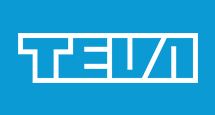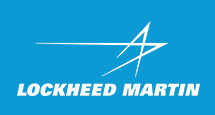“Automotive Composite Market Increasingly Driven by Shift to Electric and Hybrid Vehicles” says new visiongain report
09 April 2019
Visiongain has launched a new report Automotive Composites Market Report 2019-2029 : Market Value & Volume (KT) Forecasts by Type of Composite Material (Polymer Matrix Composite (PMC), Metal Matrix Composite (MMC), and Creamic Matrix Composites (CMC), by Type of Polymer Material (Interior, Body, Engine & Drivetrain, Other), by Type of Polymer Matrix Composites (PMC) (Carbon Fibre Reinforced Polymer (CFRP), Glass Fibre Reinforced Polymer (GFRP), Aramid Fibre Reinforced Polymer (AFRP), Metal Matrix Composites (MMC), Ceramic Matrix Composites (CMC), by Thermoplastic Polymers (PP, PA, HPP, Other) & Thermoset Polymers (Epoxy, Polyurethane, Vinyl Ester, Phenolics) Plus Leading Companies and Regional Analysis.
In recent years, the demand for automotive composites has increased at a considerable rate across the globe. This is primarily attributed to growing demand for lightweight and fuel efficient vehicles across the globe, especially from the emerging economies. According to data published by Organisation Internationale des Constructeurs d'Automobiles (OICA), the total numbers of light commercial fuel efficient vehicles produced across the world in the year 2016 was 18,825,876 that has been increased to 19,387,815 in the year 2017. Additionally, increasing use of environmentally natural fibre composites in the automotive applications is another factor expected to boost growth of the global automotive composite market at a significant rate during the forecast period between 2019 and 2029.
The automotive composite market is estimated to be valued at US$18.51bn in 2019 and is expected to record fairly moderate growth rates over the next ten years. This is primarily attributed to growth of electric and hybrid vehicles that increases demand for composites for the reduction of the added weight from batteries and hybrid powertrains. According to the data published by the International Energy Agency (IEA), in 2018, over 1 million electric cars were sold in 2017, with more than half of global sales in China. The total number of electric cars on the road surpassed 3 million worldwide, an expansion of over 50% from 2016. In contrast, high capital investments associated with the production of automotive composites is restraining growth of the target market, especially in developing countries during the forecast period between 2019 and 2029.
The Visiongain report analyst commented "The superior material properties of automotive composites are driving penetration of composites into new automotive applications and in turn supporting the growth of the global market. In addition, growing use of environmentally natural fibre composites for reducing weight and to conserve energy in automotive applications is another factor fuelling growth of the global automotive composite market. The high specific properties of natural fibre composites such as their better formability, abundance, low weight, and eco-friendly features with lower cost makes them attractive for various end-use applications. For instance, in 2017, The Mercedes-Benz E-Class used natural fiber composite in its first non-woven natural fibre sunroof frame, which is reported to provide up to 50% weight savings compared to conventional metal-reinforced sunroof frames."
Leading companies featured in the report are BMW AG, Daimler AG, Fiat Chrysler Automobiles, Ford Motor Company, General Motors (GM), Hyundai-Kia, PSA Peugeot-Citroen, Toyota Motor Corporation, Volkswagen Group, AGY Overview, Cytec Industries Inc., DowDuPont Inc., Gurit Holding AG, Johnson Controls Company, Saertex Overview, Scott Bader, SGL Group, Teijin (Toho Tenax), TenCate, Toray Industries, Binani Industries, KINECO, and Nippon Sheet Glass Co., Ltd.
Notes for Editors
If you are interested in a more detailed overview of this report, please send an e-mail to sara.peerun@visiongain.com or call her on +44 (0) 207 336 6100.
About Visiongain
Visiongain is one of the fastest-growing and most innovative independent media companies in Europe. Based in London, UK, Visiongain produces a host of business-to-business reports focusing on the automotive, aviation, chemicals, cyber, defence, energy, food & drink, materials, packaging, pharmaceutical and utilities sectors.
Visiongain publishes reports produced by analysts who are qualified experts in their field. Visiongain has firmly established itself as the first port of call for the business professional who needs independent, high-quality, original material to rely and depend on.
Recent News
Visiongain Publishes Connected Vehicle Market Report 2024-2034
The global Connected Vehicle market was valued at US$82.67 billion in 2023 and is projected to grow at a CAGR of 14.7% during the forecast period 2024-2034.
24 April 2024
Read
Visiongain Publishes Automotive Electronics Market Report 2024-2034
The global Automotive Electronics market was valued at US$270.7 million in 2023 and is projected to grow at a CAGR of 8.7% during the forecast period 2024-2034.
15 April 2024
Read
Visiongain Publishes Automobile AI and Generative Design Market Report 2024-2034
The global Automobile AI and Generative Design market was valued at US$630.7 million in 2023 and is projected to grow at a CAGR of 19% during the forecast period 2024-2034.
02 April 2024
Read
Visiongain Publishes Vehicle to Grid (V2G) Market Report 2024-2034
The global Vehicle to Grid (V2G) market was valued at US$3,391 million in 2023 and is projected to grow at a CAGR of 27.6% during the forecast period 2024-2034.
















